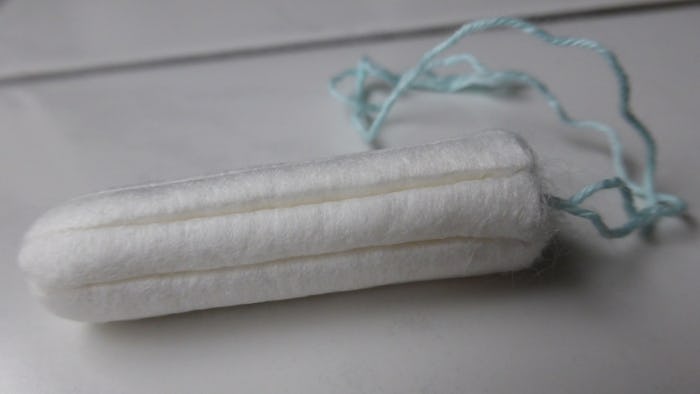Women spend about 40 years dealing with their menstrual periods on a monthly basis. Throughout your adult life, you have probably experienced all of the side-effects that come with your visits from Aunt Flo. And, if you are lucky, you are able to ignore most of them and continue to live your life. But, there are some things about your period you should pay attention to, as they could be signs of a serious problem.
You are probably already used to dealing with uncomfortable bloating, the cramps, the moodiness, and the sore boobs. As much as you would love to stay home and rest when your period arrives, you get up, put on your big girl panties (the ones you reserve for that time of the month), slip in your tampon, adhere a pantyliner, and go about your day.
By now you know that in just a few days you will be feeling back to normal. But, sometimes it takes more than a few days. Or maybe you really and truly can't get out of bed. What if you can't even remember the last time you got your period? Ask yourself some questions to make sure that you are paying attention to what you period is trying to tell you.
1How Severe Is Your PMS?
If your PMS is so bad that you're have trouble functioning at home, at work, and in your personal life, you could have premenstrual dysphoric disorder, or PMDD. This is an acute and chronic medical condition that requires treatment according to Johns Hopkins Health System. Additionally, the U.S. National Library of Medicine noted that PMDD often affects a woman's mental health and can lead to depression and anxiety.
2How Often Do You Get Your Period?
If the span between each of your periods is less than 21 days, Very Well notes that you may suffer from polymenorrhea and could have fertility issues down the line. "When a woman ovulates after a very short period of maturation in the ovary, the hormonal cues in the woman’s body may not have enough time to adapt and change throughout the cycle," Baby Hopes explains. "Therefore, that woman’s hormones may not be at levels high enough to maintain and develop a pregnancy."
3How Heavy Are Your Periods?
Soaking through a maxi pad or tampon every hour or passing large clots is defined by WebMd as menorrhagia, or a heavy period. Woman's Day reported that abnormally heavy periods can be a sign of fibroids, polyps, or adenomyosis. Additionally, if you are over 45 years of age, OB-GYN Dr. Antonio Pizarro told PG Everyday that a heavy period can be a sign of uterine cancer. Additionally, Mayo Clinic warns that African American women who experience heavy periods may have Von Willebrand disease, a rare bleeding disorder that prevents the body from clotting.
4How Many Days Does Your Period Last?
Menorrhagia is also used to describe menstrual bleeding that lasts for a prolonged period of time. The Office On Women’s Health stated that most periods last three to five days, but anywhere between two to eight days is normal. Bleeding that lasts longer should be reported to your doctor
5How Bad Are Your Cramps?
Having cramps during your period is normal, but severe cramps are not. Health reported that severe cramps ican be a sign of endometriosis. Additionally, Woman's Day warned that cramping can be a symptom of a mass in the pelvis.
6Do You Get Spotting Between Periods?
If you are on hormonal birth control, spotting can be a typical side-effect. However, there are times when spotting can mean trouble. Adelaide Nardone, a clinical OB-GYN, told Health that spotting can be a sign of uterine polyps. Woman's Day also reported that spotting can be caused by fibroids, bacterial vaginosis, or a precancerous growth.
7Have You Stopped Getting A Period?
If you are not yet at the age for menopause, not getting your period can be alarming. The Office On Women’s Health states that amenorrhea is not having a period for 90 days and causes can include pregnancy, breastfeeding, extreme weight loss, eating disorders, excessive exercising, stress, a serious medical condition, or other serious problems with the reproductive organs. If you've gone that long without your period, you should talk to your doctor immediately.
